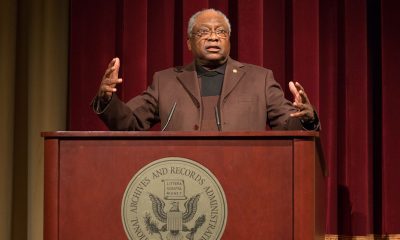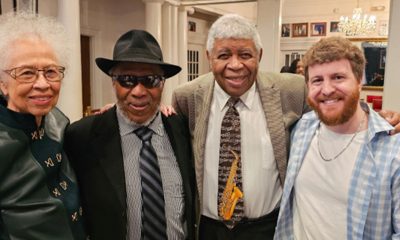Education
OP-ED: Castlemont, Fremont, and McClymonds Don’t Need to be Charters
By Jumoke Hinton Hodge, District 3 Oakland School Board Member
The Oakland Post headline was shocking to say the least. There is nothing written or recorded stating schools would be turned over to charters in our Intensive School Support Initiative.
The Call for transformation and the turnaround of sluggish school growth has been discussed for years, frankly. The five schools selected were based on the persistent voices of Latino and African American families asking for quality programs over the last six years I’ve been in office.
The Board of Education, families of color, and the community of Oakland consistently identified our high schools as a vital part of our system. Our high schools must be the centers for our students to excel, explore and come out highly prepared to enter the world.
And for some young people our high schools become a place for survival and safety. We know this to be true of Oakland because they just approved a voter initiative, Measure N of $13 million that supports Career Exploration.
<p><p>Our initiative was, first and foremost, an invitation to educators dedicated to quality education. It was a call to say we must step up to serve our students, families and Oakland’s future. Coupled with systemic and structural changes to inspire equitable and quality education, the District is providing a space to lift up good work in our schools, Last week, the district completed the first round of engagements with all of the impacted school communities. Unfortunately, the fear from misleading public information, like the above-mentioned Oakland Post headline, clouded the process.
This headline led the community to believe that charter schools were the District’s ultimate solution for the turnaround and redesign of struggling schools. Charters can be easy targets, allowing us to avoid hard questions about under performance in our traditional schools.
This call did include Charters. Honestly, they have the freedom to submit charter applications even without a process such as this. I recommend we don’t get distracted by their inclusion, but instead ask the question about the quality of the education and are we equitably serving all of our students.
We should be preoccupied with the questions, how we will link these efforts to a feeder pattern of schools in East and West Oakland – where students of color have been perpetually underserved? How can we guarantee a solid start in their lives from Pre-K through 12th grade, while under our charge?
McClymonds, Castlemont and Fremont have all taken the initiative to articulate their desire to innovate and be at the forefront of their change.
This journey OUSD launched last week will take us 18 months to complete and even longer to sustain. I encourage us all to collectively work through the fear and the hurt from the failed visions of the past.
We can’t move forward together without this commitment.
Let’s use our passion to build better schools, learn from our students, educators, community partners and the public. Together we can display how the Oakland education system can fuel a vibrant economy and improve the quality of life as we witness generations of young people thriving.
Jumoke Hinton Hodge is the District 3 member of the Oakland Board of Education.
Bay Area
Rich Lyons, Longtime Campus Business, Innovation Leader, Will Be UC Berkeley’s Next Chancellor
Rich Lyons, an established economist, former dean of the Haas School of Business and the campus’s current leader for innovation and entrepreneurship, will become the next chancellor at the University of California, Berkeley, the UC Board of Regents announced on April 10.
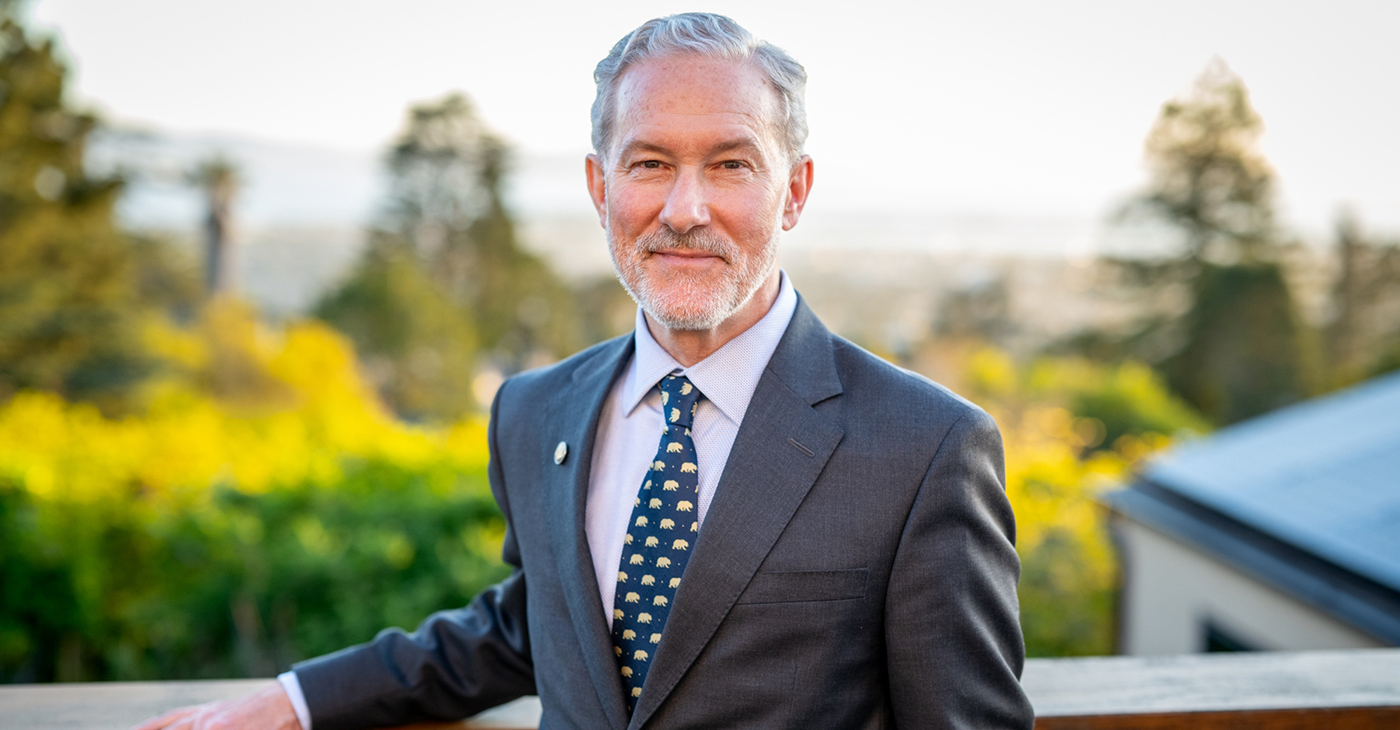
By Jason Pohl
Rich Lyons, an established economist, former dean of the Haas School of Business and the campus’s current leader for innovation and entrepreneurship, will become the next chancellor at the University of California, Berkeley, the UC Board of Regents announced on April 10.
The board’s unanimous confirmation makes Lyons, 63, the first UC Berkeley undergraduate alumnus since 1930 to become the campus’s top leader. In an interview this week, Lyons said he credits his Berkeley roots and his campus mentors with encouraging him to ask big questions, advance institutional culture and enhance public education — all priorities of his for the years to come.
Lyons, who will be Berkeley’s 12th chancellor, will succeed Chancellor Carol Christ, who announced last year that she’d step down as chancellor on July 1.
“I am both thrilled and reassured by this excellent choice. In so many ways, Rich embodies Berkeley’s very best attributes, and his dedication to the university’s public mission and values could not be stronger,” Christ said. “I am confident he will bring to the office visionary aspirations for Berkeley’s future that are informed by, and deeply respectful of, our past.”
Rising through the Berkeley ranks
Born in 1961, Lyons grew up in Los Altos in the early days of the Silicon Valley start-up boom.
He attended Berkeley, where he graduated in 1982 with a Bachelor of Science degree in business and finance. Lyons went on to earn his Ph.D. in 1987 in economics from MIT. After six years teaching at Columbia Business School, Lyons returned west, where in 1993 he joined the Berkeley faculty as a professor of economics and finance, specializing in the study of international finance and global exchange rates.
He’s remained on campus since, with one notable exception.
Starting in 2006, Lyons spent two years working at Goldman Sachs as the chief learning officer. It was a period that instilled in him an appreciation for leadership and the importance of organizational culture.
He carried those lessons with him when he returned to campus in 2008 and became the dean of the Haas School of Business.
While dean, Lyons oversaw the construction of Connie & Kevin Chou Hall, a state-of-the-art academic building that opened in 2017 and is celebrated for its sustainability. He also helped establish two new degree programs, linking the business school with both the College of Engineering and the Department of Molecular and Cell Biology.
But it was his creation of four distinct defining leadership principles that spurred a sweeping culture initiative at the school that stands out in the minds of many. Those values — question the status quo, confidence without attitude, students always, and beyond yourself — became a creed of sorts for new students and alumni alike.
Those values are important, Lyons said, because they shape and support the cohesive structure of a strong, connected community — spanning science and technology to the arts and humanities. They also convey the story about what it means to be at Berkeley and to believe in the university’s public mission.
“When we are great as educators, it’s identity-making,” Lyons said. “We’re helping students and others see identities in themselves that they couldn’t see.”
Lyons in January 2020 became Berkeley’s first-ever chief officer of innovation and entrepreneurship.
Building on his research exploring how leaders drive innovation and set behavioral norms and culture, Lyons worked to expand and champion Berkeley’s rich portfolio of innovation and entrepreneurship activities for the benefit of students, faculty, staff, startups and external partners.
It was a major commitment to thinking outside the box, he said. One need only look to the Berkeley Changemaker program that he helped launch in 2020 to see innovation and entrepreneurship in action.
The campuswide program with some 30 courses tells the story of what Berkeley is — the story that members of the Berkeley community can tell long into the future. Berkeley Changemaker started as an idea and its courses quickly became among the most popular academic offerings on campus.
“Over 500 students showed up,” he said. “Why? Because it’s a narrative. It’s not just a name. It’s not just a curriculum. It’s not just a course. It’s a way of living, and it’s a way of living that Berkeley has occupied forever. This idea that there’s got to be a better way to do this, question the status quo.”
Community
AG Bonta Says Oakland School Leaders Should Comply with State Laws to Avoid ‘Disparate Harm’ When Closing or Merging Schools
California Attorney General Rob Bonta sent a letter this week to the Oakland Unified School District (OUSD) Board of Education saying the district has a duty to comply with state education and civil rights laws to protect students and families from “disparate harm,” such as segregation and discrimination, if the district goes ahead with school closures, mergers or consolidations in 2025-2026.
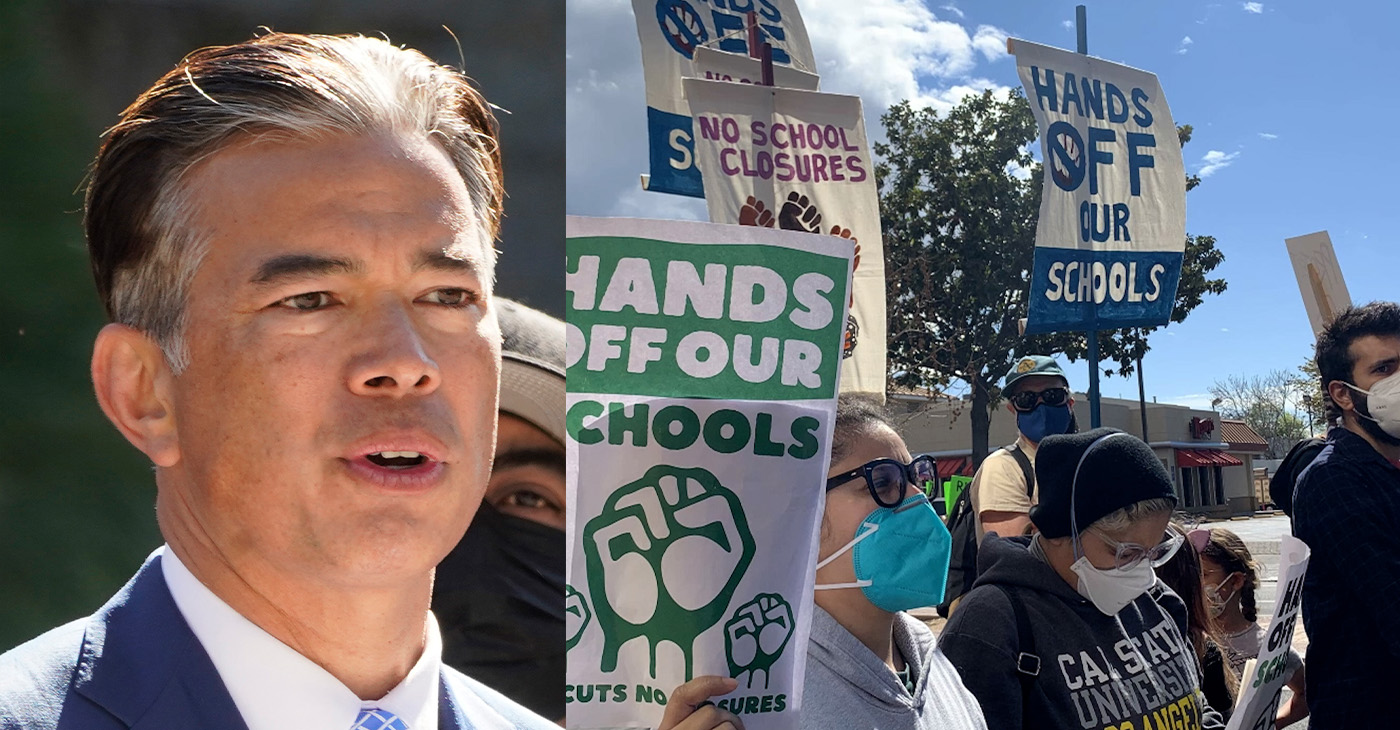
AG Bonta said DOJ investigation of 2022 closure decisions would have negatively impacted Black and low-income families.
By Post Staff
California Attorney General Rob Bonta sent a letter this week to the Oakland Unified School District (OUSD) Board of Education saying the district has a duty to comply with state education and civil rights laws to protect students and families from “disparate harm,” such as segregation and discrimination, if the district goes ahead with school closures, mergers or consolidations in 2025-2026.
The letter and an accompanying media release announced the findings of the California Department of Justice’s (DOJ) investigation into the OUSD Board’s Feb. 8, 2022, decision to close Parker Elementary, Brookfield Elementary, Carl B. Munck Elementary, Fred T. Korematsu Discovery Academy, Grass Valley Elementary, Horace Mann Elementary, and Community Day School and eliminate grades 6-8 of Hillcrest Elementary and La Escuelita Elementary.
“All school districts and their leadership have a legal obligation to protect vulnerable children and their communities from disparate harm when making school closure decisions,” said Attorney General Bonta.
“The bottom line is that discrimination in any form will not be tolerated,” he said. “I am committed to working with OUSD’s leadership to achieve successful outcomes for students.
“My office will continue to monitor OUSD’s processes and decision-making as it moves forward with the required community engagement, equity impact analysis, and planning to implement any future closures, mergers, or consolidations” to ensure compliance with California’s Constitution, AB 1912, and anti-discrimination laws.
By press time, the school district did not respond to a request for comment from OUSD.
The DOJ’s findings showed that the February 2022 decision, later partially rescinded, would have disproportionately impacted Black and low-income elementary students, as well as high-need students with disabilities, according to the media release.
The Attorney General outlined concerns about criteria OUSD has announced that it may rely on to determine future closures, mergers, and consolidations and provided recommendations to ensure OUSD does not violate state law, including prohibitions against closure decisions that reinforce school segregation or disproportionately impact any student group as required by the State Constitution, AB 1912, and anti-discrimination laws.
According to AB 1912, passed in September 2022, financially distressed school districts contemplating school closures, mergers, or consolidations must engage the community before closing schools; conduct an equity impact assessment; and provide the public with the set of criteria the district plans to utilize to make decisions.
In the letter, DOJ identified a “problematic” approach to planning for closing schools in 2025-2026 and “strongly recommends” steps OUSD should take going forward.
- “Take affirmative steps to ensure that its enrollment and attendance boundary and school closure decisions alleviate school segregation and do not create disproportionate transportation burdens for protected subgroups.”
- Don’t solely utilize criteria such as school facilities’ conditions, school operating costs, and school capacity without also including an assessment of past and present inequities in resources “due to educational segregation or other causes.”
- Some of OUSD’s proposed guidelines “may improperly penalize schools serving students with disabilities and students who have high needs.”
- The district’s decisions should also include “environmental factors, student demographics and feeder attendance patterns, transportation needs, and special programs.”
- Avoid overreliance on test scores and other quantitative data without also looking at “how each school is serving the needs of its specific student body, especially as it relates to historically marginalized communities.”
- “Engage an independent expert to facilitate community input and equity impact.”
The letter also emphasized that DOJ is willing to provide “feedback and consultation at any time during the process to ensure that OUSD’s process and outcomes are legally compliant and serve the best interests of the school community and all of its students.”
Art
Marin County: A Snapshot of California’s Black History Is on Display
The Marin County Office of Education, located at 1111 Las Gallinas Ave in San Rafael, will host the extraordinary exhibit, “The Legacy of Marin City: A California Black History Story (1942-1960),” from Feb. 1 to May 31, 2024. The interactive, historical, and immersive exhibit featuring memorabilia from Black shipyard workers who migrated from the South to the West Coast to work at the Marinship shipyard will provide an enriching experience for students and school staff. Community organizations will also be invited to tour the exhibit.
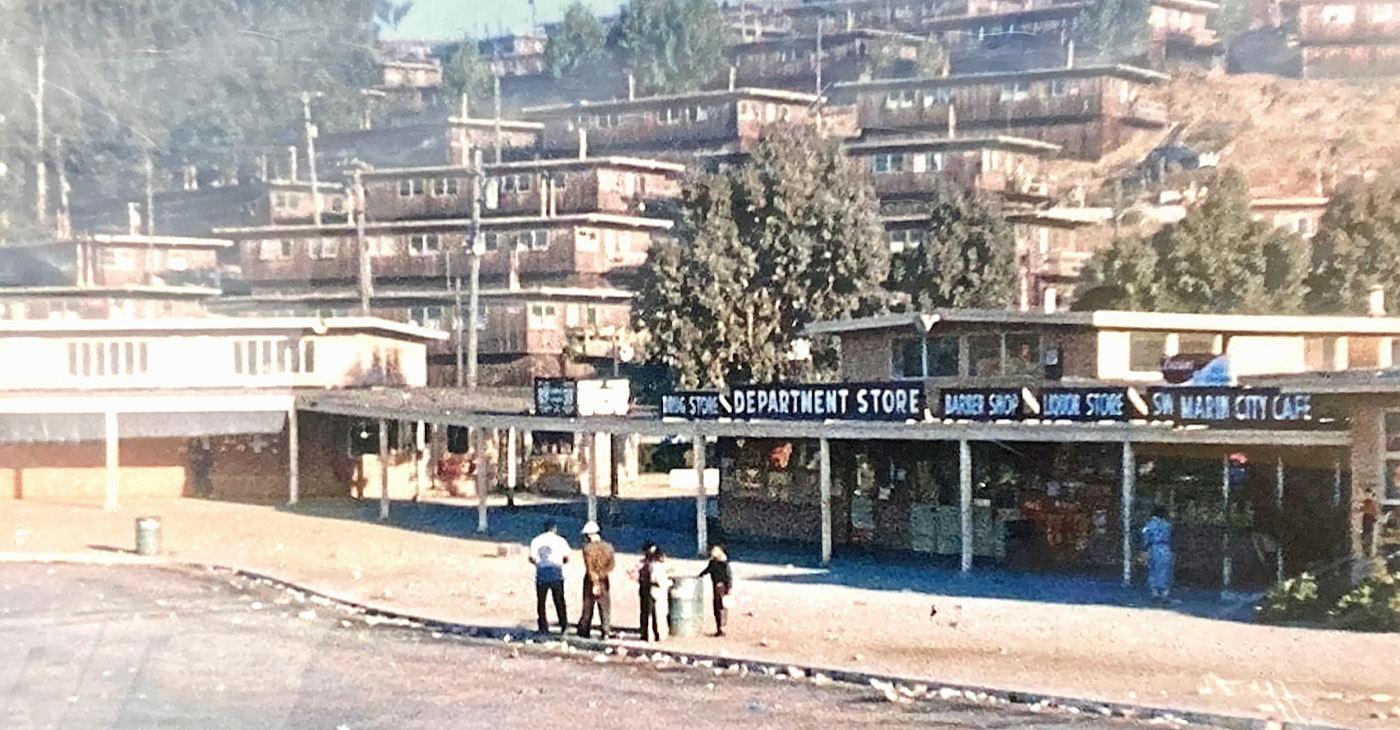
By Post Staff
The Marin County Office of Education, located at 1111 Las Gallinas Ave in San Rafael, will host the extraordinary exhibit, “The Legacy of Marin City: A California Black History Story (1942-1960),” from Feb. 1 to May 31, 2024.
The interactive, historical, and immersive exhibit featuring memorabilia from Black shipyard workers who migrated from the South to the West Coast to work at the Marinship shipyard will provide an enriching experience for students and school staff. Community organizations will also be invited to tour the exhibit.
All will have the opportunity to visit and be guided by its curator Felecia Gaston.
The exhibit will include photographs, articles and artifacts about the Black experience in Marin City from 1942 to 1960 from the Felecia Gaston Collection, the Anne T. Kent California Room Collection, The Ruth Marion and Pirkle Jones Collection, The Bancroft Library, and the Daniel Ruark Collection.
It also features contemporary original artwork by Chuck D of the Rock and Roll Hall of Fame group Public Enemy, clay sculptures by San Francisco-based artist Kaytea Petro, and art pieces made by Marin City youth in collaboration with Lynn Sondag, Associate Professor of Art at Dominican University of California.
The exhibit explores how Marin City residents endured housing inequities over the years and captures the history of plans to remove Black residents from the area after World War II. Throughout, it embodies the spirit of survival and endurance that emboldened the people who made Marin City home.
Felecia Gaston is the author of the commemorative book, ‘A Brand New Start…This is Home: The Story of World War II Marinship and the Legacy of Marin City.’ Thanks to the generous contribution of benefactors, a set of Felecia’s book will be placed in every public elementary, middle, and high school library in Marin.
In addition, educators and librarians at each school will have the opportunity to engage with Felecia in a review of best practices for utilizing the valuable primary sources within the book.
“Our goal is to provide students with the opportunity to learn from these significant and historical contributions to Marin County, California, and the United States,” said John Carroll, Marin County Superintendent of Schools.
“By engaging with Felecia’s book and then visiting the exhibit, students will be able to further connect their knowledge and gain a deeper understanding of this significant historical period,” Carroll continued.
Felecia Gaston adds, “The Marin County Office of Education’s decision to bring the Marin City Historical Traveling Exhibit and publication, ‘A Brand New Start…This is Home’ to young students is intentional and plays a substantial role in the educational world. It is imperative that our community knows the contributions of Marin City Black residents to Marin County. Our youth are best placed to lead this transformation.”
The Marin County Office of Education will host an Open House Reception of the exhibit’s debut on Feb. 1 from 4 p.m. – 6 p.m.. All school staff, educators, librarians, and community members are encouraged to attend to preview the exhibit and connect with Felecia Gaston. To contact Gaston, email MarinCityLegacy@marinschools.org
-

 Activism4 weeks ago
Activism4 weeks agoOakland Post: Week of March 20 – 26, 2024
-

 #NNPA BlackPress3 weeks ago
#NNPA BlackPress3 weeks agoCOMMENTARY: D.C. Crime Bill Fails to Address Root Causes of Violence and Incarceration
-

 #NNPA BlackPress3 weeks ago
#NNPA BlackPress3 weeks agoMayor, City Council President React to May 31 Closing of Birmingham-Southern College
-

 #NNPA BlackPress3 weeks ago
#NNPA BlackPress3 weeks agoFrom Raids to Revelations: The Dark Turn in Sean ‘Diddy’ Combs’ Saga
-

 #NNPA BlackPress3 weeks ago
#NNPA BlackPress3 weeks agoCOMMENTARY: Lady Day and The Lights!
-

 #NNPA BlackPress3 weeks ago
#NNPA BlackPress3 weeks agoBaltimore Key Bridge Catastrophe: A City’s Heartbreak and a Nation’s Alarm
-

 #NNPA BlackPress3 weeks ago
#NNPA BlackPress3 weeks agoBaltimore’s Key Bridge Struck by Ship, Collapses into Water
-

 Activism3 weeks ago
Activism3 weeks agoOakland Post: Week of March 27 – April 2, 2024







